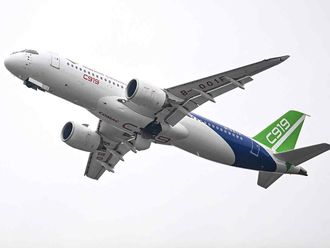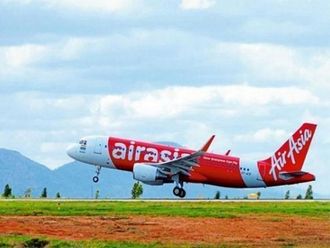Madrid: Spain announced Friday it will sell a 49-per cent stake in state-owned airport operator AENA, taking advantage of a renewed optimism on financial markets to raise billions of euros.
Prime Minister Mariano Rajoy’s conservative government approved the long-delayed sale of a stake, reportedly worth nearly €2.5 billion (Dh12.5 billion), in one of the world’s largest airport managers.
Plans for a partial privatisation of AENA were first revealed by the former Socialist government in 2011, but they had to be delayed as investors struggled to find the money on financial markets worried about Spain’s debt crisis.
Spain’s stock market has climbed by about 12 per cent so far this year, however, as investors are lured by the prospect of a gradual recovery since the economy emerged in mid-2013 from five years of stop-start recession.
AENA, which runs 46 airports and two heliports in Spain and another 15 airports abroad, most in Mexico, is worth “easily” €16 billion, its president Jose Manuel Vargas told leading daily El Pais in an interview last week, basing his estimate on the value of similar airport assets abroad.
AENA carries a debt of more than €11 billion, however, which would have to be subtracted from the €16-billion valuation, he told the paper.
The resulting net estimate of AENA’s value is €5 billion, of which 49 per cent would be €2.45 billion, the paper said, describing it as the biggest Spanish privatisation in 15 years.
“Today we approved the launch of the operation,” the minister for public works, Ana Pastor, told a news conference after the ministerial meeting put a rubber stamp on the deal.
Initially, a 21-per cent stake in AENA would be placed with private investors, after which a 28-per cent stake would be floated to the public, she said.
A timetable released by the public works ministry said the government would select the private investors for the first stage in September, ahead of a flotation and stock market listing in November.
The Spanish government will publish a new regulatory framework for the airport industry in July, it said.
“The presence of private investors in our view will strengthen the management of the company, guaranteeing the future sustainability of the Spanish airport network,” Pastor said.
AENA, which says its Spanish airports handled 187.4 million passengers last year, would nevertheless remain a state-owned organisation, with the government holding a narrow majority of 51 per cent, she said.
The minister said AENA had undergone an extensive restructuring with deep cost cutting since her government came to power in 2011.
AENA reported a net profit of €596.7 million for 2013, emerging from a net loss of €63.5 million the previous year.
The previous Spanish government had sought in 2011 to sell 90.05 per cent of the shares in airports in Madrid and Barcelona, aiming to raise €5.3 billion.
That plan had also included the sale of a 49 per cent stake in AENA but was abandoned ahead of November 2011 elections, which were won in a landslide by Rajoy’s Popular Party.
In January 2012 his new conservative government was forced to shelf the plans to privatise the airports because of “unfavourable” market conditions.
Groups that had expressed interest in the sale included the Spanish company Ferrovial in addition to European rivals Aeroports de Paris and Frankfurt-based Fraport.











